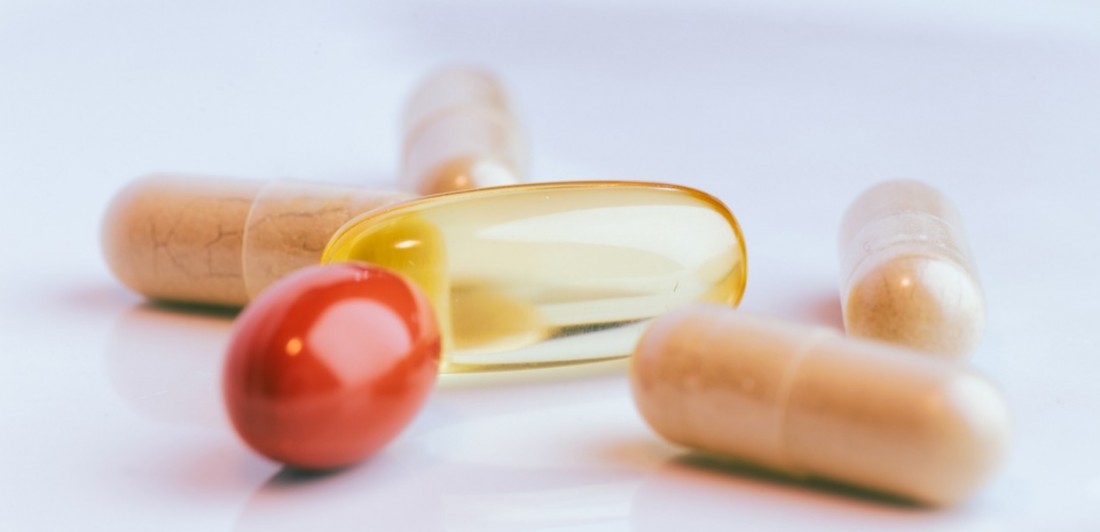“WHAT supplements should I be taking?” This is one of the most common questions I get asked when I meet a player for the first time, particularly at age grade level (i.e., minor level and below).
Don’t get me wrong, I think it is fantastic that our sport is progressively evolving, with more and more players taking a holistic approach to their development (including considering nutritional input) from a much younger age.
However, with this in mind, nutrition is much more than a manufactured dietary supplement. Searching for the next nutritional supplement as a dietary solution isn’t an ideal way of fuelling your growth, development and athletic performance as a youth player, and below I am going to discuss why.
Firstly, let’s get our terminology in check. A dietary supplement can be described as ‘a food, food component, nutrient or non-food compound that is purposely ingested in addition to the habitually consumed diet with the aim of achieving specific health and/or performance benefit.’
With this in mind, the only time nutritional supplements are deemed essential in an athlete’s diet is to treat an underlying deficiency or health related condition. So, are they really essential in your diet?
Before we go into supplements any further, let’s remind ourselves of the key elements of maximising performance in GAA. It is no secret at this stage that to excel, we require a number of variables:
-Natural talent
-Coaching
-Structured training
-Sound off field behaviours
-Optimal nutritional intake
-Optimal sleep and recovery
With this in mind, not one of the above factors can be replaced by nutritional supplements.
We commonly see at age grade level, players aiming to accelerate their physical development, occasionally utilising supplements as a ‘quick fix’ answer. But in fact, there is little evidence to support these practices, as youth players will develop strength and size by letting natural growth and maturation take place, engaging in appropriately planned training and adequate food and fluid intake. There isn’t a magic potion!
Imagine a deep cut on your hand. If you cover it up with a plaster, this may reduce the flow of blood from your wound. However it won’t treat the underlying problem – we are going to need stitches! So why should our approach to nutrition be different? If we are struggling to consume a balanced diet (required for growth and performance), utilising nutritional supplements will only cover up the problem, not solve it. We rely on a food first approach when it comes to supporting youth athletes, as whole foods do not provide a single nutrient alone e.g., chicken as a protein source, but an array of other key nutrients that are required for our body to function.
However, if we were to look for a whey protein powder in replacement of a whole food such as chicken, we will only receive one specific nutrient such as protein.
As a growing and developing athlete, you require nourishing foods to NOURISH your body. We shouldn’t nor need to rely on synthetic supplemented products to see us through!
So, should nutritional supplements not be used at all in the GAA? No, there is of course a time and a place for supplementation, however this is best managed and warranted with a more mature cohort of players e.g., senior players, within the right context.
Typically, at senior level, players have developed greater consistency with nutritional habits and therefore in the correct context i.e., complementing a well-balanced diet, supplementation can prove to have direct effect on health, performance and training adaptation. Note this is in ADDITION to a well-balanced diet.
Further, at senior level, supplementation can be used as a practical method of meeting increased nutrient needs around training e.g., post session protein shakes to assist in recovery (when large quantities of food are difficult to consume). However, with this in mind, at age grade level, a glass of milk will be just as (if not more) beneficial and is relatively cheap.
If the time comes throughout your development, where appropriate nutritional supplementation is warranted, you do need to be careful, ensuring you choose quality products.
In the GAA, we are in fact liable to be tested for the presence of banned substances both in and out of competition to protect clean sport. With this in mind, there is always the possibility that a sports supplement may contain a banned and possibly harmful substance and therefore careful consideration must be spent on choosing safe supplementation products.
Further, high-profile cases in the past have shown certain players failing a drugs test by consuming a supplemented product where a banned substance has not been declared on the labelling or cross contamination has taken place during the production process. In these situations, inadvertent doping has taken place i.e., an athlete consuming a banned substance unintentionally. But unfortunately, unawareness is not an excuse when it comes to a failed drug test so let’s remove that risk completely. Let’s be responsible.
Here are three key tips to avoid inadvertent doping from a nutritional supplement:
-Adopt a food first approach when able.
-ALWAYS ask qualified professionals’ advice prior to commencing supplementation or medication.
-ALWAYS ensure your supplements have been informed sport approved i.e., have been batch tested for banned substances.
To conclude, although there are a range of nutritional supplements with a wealth of scientific evidence to support their efficacy in sport/GAA, let’s not forget the fundamentals of nutrition i.e., following a balanced diet. Supplementation should enhance an already balanced diet not replace!
Don’t let clever marketing cloud your judgement when it comes to fancy products. Ask for advice and be responsible and enjoy being back to training!
Receive quality journalism wherever you are, on any device. Keep up to date from the comfort of your own home with a digital subscription.
Any time | Any place | Anywhere












